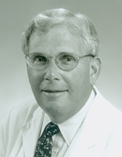
Bernard M. Babior
November 10, 1935 - June 29, 2004
|
Scientific Discipline: Medical Genetics, Hematology, and Oncology Membership Type:
Member
(elected 1999)
|
Bernard M. Babior conducted groundbreaking research on the biochemistry of the body’s defense against infection. He studied white blood cells (phagocytic cells), which breakdown foreign material, and noted they produced reactive oxidants (oxygen free radicals) to kill bacteria. This discovery led him to develop an in vitro method of studying biological reactions outside the confines of a cell. Through this method he outlined a pathway by which white blood cells generate superoxide, a radical that is biologically toxic, via an enzyme oxidase. In addition, he showed a connection between a deficiency in oxidase and human disease.
Babior graduated from the University of California, Berkley in 1956 and earned his M.D. from the University of California, San Francisco in 1959. He received his PhD from Harvard University in 1965 and worked for the National Heart Institute at the National Institutes of Health. From 1969 to 1972 he taught medicine at Harvard Medical School. From 1972 to 1986 he was a professor of medicine at Tufts University School of Medicine. He moved to the Scripps Research Institute where he served as a professor of Molecular and Experimental Biology, the head of the Division of Biochemistry, and a staff physician for the Division of Hematology-Oncology at the Scripps Clinic and Research Foundation.

